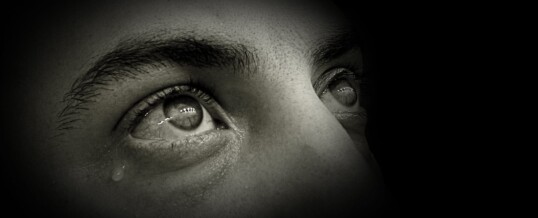
Jesus’ disciples asked, “who sinned, this man or his parents that he was born blind?’ I hear some variation on this question almost every week in the hospital. “What did I do to deserve this?’ ‘Why are we being punished?” “What should I have done differently?” When bad things happen, most of us look for something that will make life seem fair and, perhaps even more important, predictable. We want to be able to see what is coming so that we can live in certainty rather than having to rely on faith.
Both the Old Testament reading and the Gospel reading today remind us that God is not predictable. God does not do things the way human beings would do them. Suffering and struggle are not punishment, they are part of the human condition. Suffering and struggle are not what separates us from God; rather they are the place where God meets us and is made visible in our world. The man in the Gospel story was not blind because he deserved blindness, and he was not blind because his parents deserved to have a child who was blind. We are told that he is blind so that “the works of God might be made visible through him.” In every place where we acknowledge our human vulnerability and limitation, we are presented with the opportunity to see God more clearly.
Jesus says that he came into the world so that the blind might see, and so that those who see, might be made blind. Jesus came to draw all of us closer to God by giving us what we most need. To those who are separated from God by their suffering, he gives healing: sight for those who are blind; hearing for those who are deaf; and the ability to walk for those who are lame. To those who are separated from God by their certainty, their smugness, and their belief that they already know what God will do, he gives an awareness of uncertainty, of how much they do not know. That newfound “blindness” is offered, not as a punishment, but as an opportunity. It is only when we realize that there is something right in front of us that we have not been able to see, that we begin to look more closely.
I do not claim to know why good people suffer. I do not know why people get diseases or die untimely deaths. What I do know is that those who accept the fact that they do not know and cannot know, those who recognize the limits of their human vision and turn to God with trust, find a peace and an awareness of love that humbles and inspires me.
Working in the hospital, I see suffering every day. It terrifies me to know that my life and the lives of those that I love are not significantly different from the lives of many patients before they were admitted to the hospital. I wish that I could be certain that God would spare me and “mine” because of our faith or our “goodness” or our service, or anything else. But I cannot. The only thing that I can be sure of, is that whatever comes, there will be an opportunity to see the work of God in our lives, if we look.
Pam Driedger
MAR
2023

About the Author: